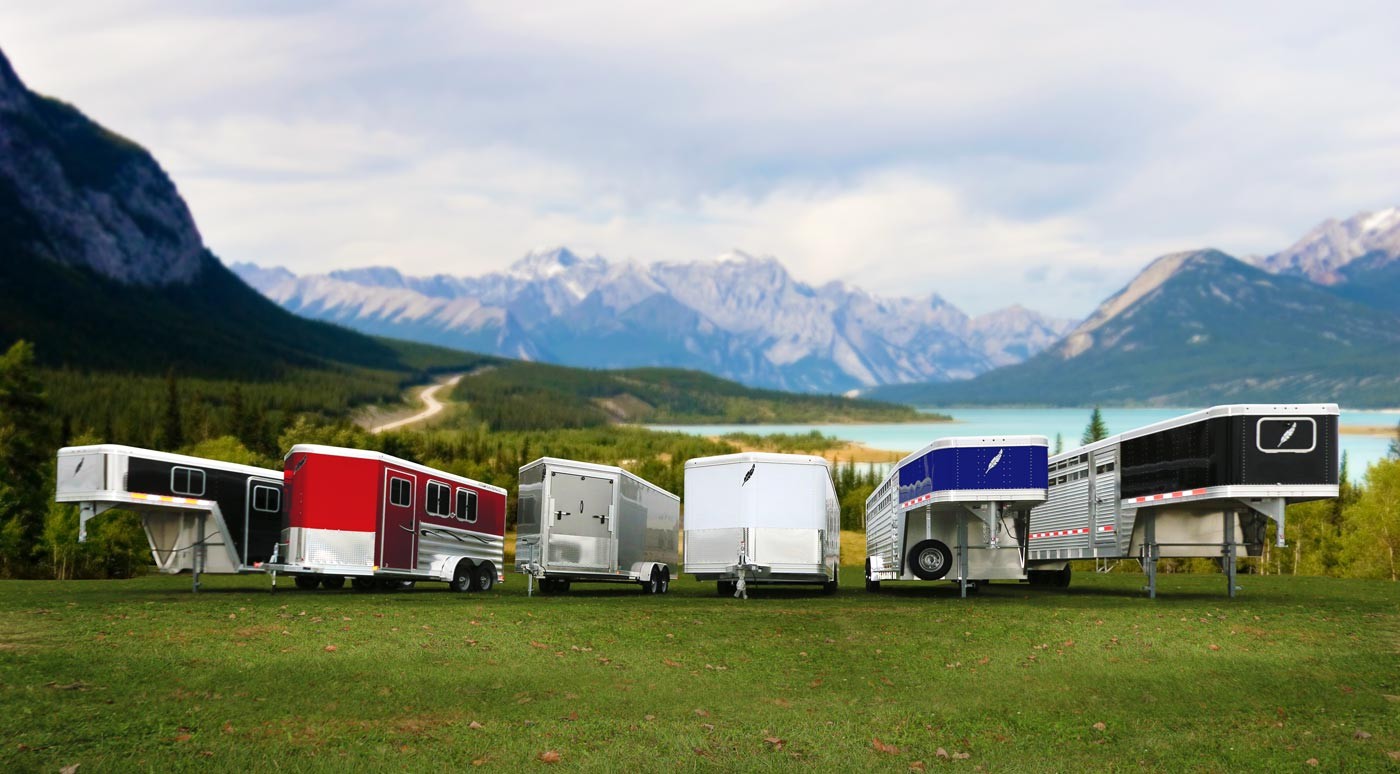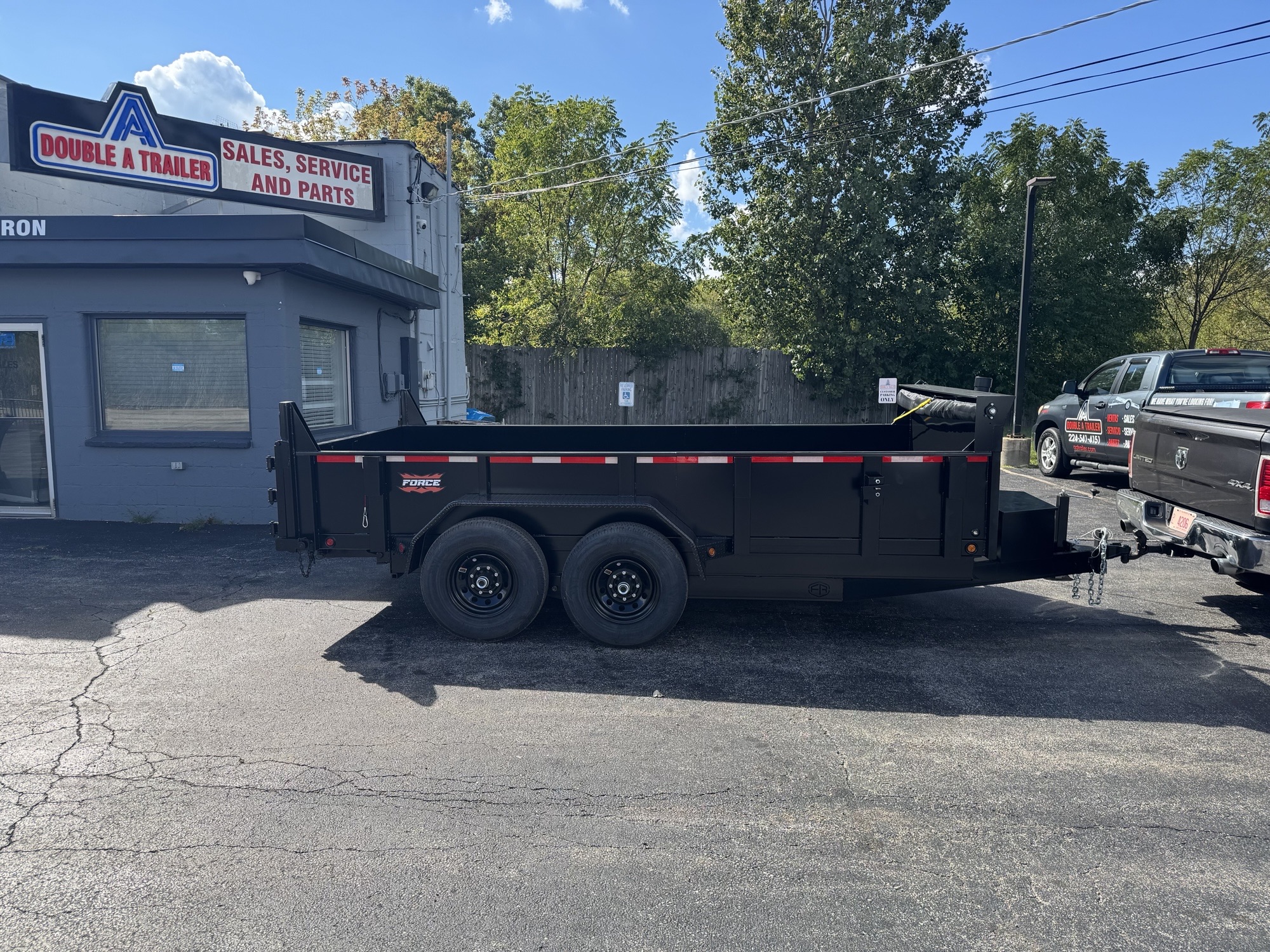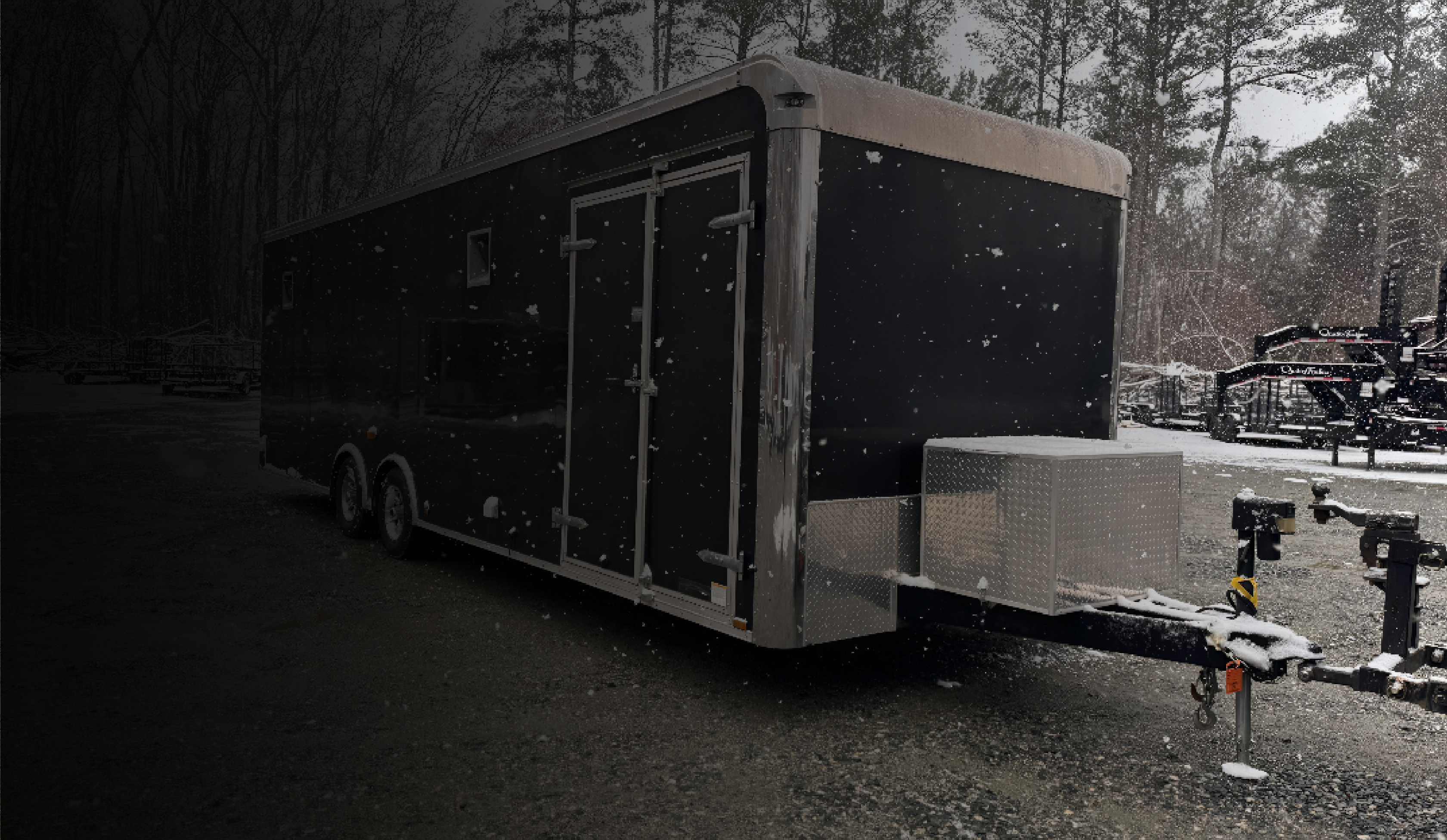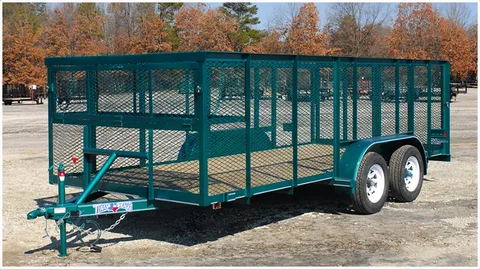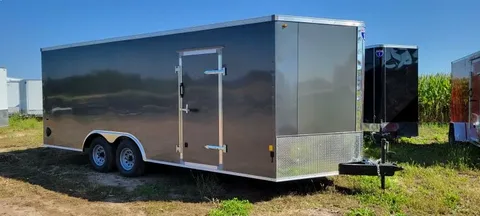If you’re worried about “do trailers need insurance?” In many cases, yes. Some states require it by law. In others, it depends on how your trailer is used and what type it is.
And even when it’s not legally required, having the right coverage could save you from a serious financial hit if your trailer is stolen, damaged, or causes an accident.
What makes it confusing is that trailer insurance isn’t always as straightforward as car insurance. Your auto policy might cover it, but only in certain situations. If it’s a travel trailer, a commercial setup, or something you use regularly, you’ll likely need separate protection.
That’s what this guide is here for. You’ll get to know clear answers about what’s required, what’s smart, and how to protect your trailer the right way.
What Kind Of Trailer Needs Insurance?
Not every trailer has to be insured, but depending on what kind you’ve got and how you’re using it, you might need more coverage than you think.
If You’ve Got a Utility or Cargo Trailer for Personal Use
This includes utility trailers, cargo trailers, landscaping trailers, and even small boat trailers. If you’re only using them for personal tasks like yard work, moving equipment, or weekend projects. Your auto insurance might offer basic liability coverage while they’re attached to your vehicle.
But here’s the thing most people miss: it doesn’t cover the trailer itself. So if it gets stolen or meets with an accident, you’ll be left paying out of pocket unless you have utility trailer insurance coverage that actually protects the trailer, not just what it might hit.
Learn how Cargo Enclosed Trailers: A Cost Effective Solution for Safe Transport
If You’re Using Your Trailer for Work
If you’re hauling tools, equipment, or anything for your business, you need a commercial trailer insurance policy. Your personal car insurance won’t cover a trailer being used for work, even if it’s just part-time.
Commercial coverage protects your trailer and its contents. Providing the trailer accident liability limits you need in case something goes wrong on the job. If it’s tied to your business, insuring it properly is a must.
If You Own a Travel Trailer or Camper
If your trailer doubles as a mini vacation home, like a camper, pop-up, or travel trailer, you’re going to want its own insurance policy. Insurance for travel trailers is different from standard auto coverage because these trailers aren’t just for hauling, they’re for living.
Your car insurance won’t cover damage to the trailer, the stuff inside it, or liability if something happens at a campsite. A good camper trailer insurance policy covers all of that, even personal belongings, emergency costs, and extra living expenses if you’re far from home and something goes wrong.
If You’re Hauling a Non-Motorized Trailer Often
Even if your trailer doesn’t have an engine (most don’t), if you’re towing it regularly or using it to carry expensive gear, it makes sense to get separate non-motorized trailer insurance.
Auto policies don’t usually protect trailers that are parked, left overnight in public areas, or stored with tools and equipment inside. If you’re using it regularly for work or just lifestyle, insurance keeps you covered in ways your main vehicle policy doesn’t.
Cost of Trailer Insurance
The cost of trailer insurance depends on several key factors: the type of trailer, its intended use, your location, and the specific coverage types for trailers you choose. But here’s the average monthly cost for different types of trailer:
| Trailer Type | Avg Monthly Cost |
| Utility Trailer | $8 – $15 |
| Cargo Trailer | $10 – $25 |
| Camper Trailer | $25 – $60+ |
| Travel Trailer | $20 – $50+ |
| Commercial Trailer | $50 – $150+ |
What are the Trailer Insurance Requirements USA?
Depending on where you live, the requirements might be totally different. State laws on trailer insurance decide whether you need a separate policy, what type of coverage is mandatory, and whether you’ll need proof just to register the trailer.
You won’t find a nationwide rule that forces all trailer owners to buy insurance. However, many states have their own legal trailer insurance rules USA, especially in specific cases like commercial use, registration requirements, or trailer weight limits.
- If your trailer is registered and titled separately from your vehicle
- If your state requires proof of financial responsibility (like California or New York)
- If the trailer is used for commercial purposes
- If it’s a travel trailer or RV-style camper
- If the trailer is over a certain weight limit (often around 2,000 lbs gross vehicle weight)
People often ask, do you need insurance for a utility trailer if it’s only used a few times a year? The answer depends on your state laws and whether your auto policy offers any protection while it’s hitched.
When Your Auto Policy Covers Your Trailer
Many auto insurance policies offer limited liability coverage for your trailer, but only while it’s attached to your vehicle. Under motor vehicle insurance laws USA, some states treat trailers as extensions of the car, while others require them to be insured separately.
Just keep in mind, that basic coverage usually doesn’t include :
- Theft
- Vandalism
- Damage while parked
- Collision damage to the trailer itself
Insuring trailer for theft or damage requires dedicated trailer coverage, either as an add-on or standalone policy.
Do you need insurance on a trailer to register it?
Some states won’t even let you register your trailer unless you show proof of insurance, and without registration, you can’t legally tow it on public roads.
In places like California, New York, or Texas, trailer registration and insurance are often paired together. You may be required to insure your trailer before the DMV will issue a license plate or title. And if you’re using the trailer for business? It’s almost always mandatory.
What States Require Trailer Insurance?
Some states require proof of trailer insurance before they’ll let you register it. Others only require it for commercial trailers or those exceeding certain weight thresholds.
| State | Insurance Required? | Notes |
| California | Yes (some cases) | Required for commercial, RVs, and some heavier trailers |
| New York | Yes (most cases) | Needed for registration for many trailer types |
| Texas | Usually | Required for travel and business trailers |
| Florida | Sometimes | Depends on trailer class and weight |
| Illinois | Yes (for commercial) | Required for registration of certain commercial trailers |
| Arizona | No | But recommended for personal and travel trailers |
| Colorado | Sometimes | Weight-based requirements |
How to Insure a Trailer?
You don’t need to be an expert or spend hours calling around. Just figure out what kind of trailer you have, how you use it, and what kind of coverage makes sense. The rest is pretty simple.
Here’s how to get it sorted without the stress.
1. Know Your Trailer Type and How You’re Using It
Before you start looking at insurance, just figure out what kind of trailer you have and what you’re using it for.
If it’s just for personal use, you might need something simple. But if it’s for work, or it’s worth a lot, the insurance will need to match. The size, how often you use it, and what’s in it all affect what you’ll pay and what kind of policy fits.
2. Check What Your Auto Policy Already Covers
Next, take a look at your current auto insurance. Some policies provide basic liability coverage for trailers while they’re attached to your vehicle. However, most won’t cover theft, damage, or any incidents that occur when the trailer is unhitched.
3. Shop Around and Compare Quotes
Now that you know what you need, it’s time to get a few quotes. Go to trusted insurance providers that offer RV and trailer insurance USA.
You don’t have to go with the first one you find. Most insurers will ask for the trailer’s value, how often it’s used, and where you’ll be storing it when not in use.
4. Choose the Right Coverage
Not all trailer insurance is the same. How you plan to use your trailer makes a big difference in the kind of coverage you need.
If you’re using your trailer commercially, make sure you’re choosing business-specific coverage. As, personal insurance won’t protect you in that case. Some of the most common types include:
- Liability – covers damage or injury your trailer causes to others
- Collision – covers your trailer if it’s damaged in an accident.
- Comprehensive – covers theft, fire, weather damage, and vandalism.
- Contents or cargo coverage – protects valuable tools or equipment stored insid.e
5. Provide the Trailer Details
Once you’ve figured out your coverage and picked a provider, you’ll need to fill in some basic info about your trailer. Things like the VIN, make and model, how you plan to use it, how much it’s worth, and where you keep it when it’s not on the road. Just have that stuff ready, and the rest goes pretty smoothly.
6. Purchase the Policy and Save the Proof
Once you’ve filled out everything and confirmed the quote, proceed to finalize the purchase. You’ll get proof of insurance instantly, and you should save that document somewhere safe, especially if your state requires it for trailer registration.
Best Trailer Insurance Companies
Choosing the right trailer insurance company isn’t just about who has the lowest rates. You want coverage that actually protects you in the event of an unfortunate accident.
A smooth claims process and support when something goes wrong. Here are some of the top-rated insurance providers in the USA that people consistently trust for trailer and RV coverage.
Progressive
Progressive is one of the top choices for trailer insurance, especially if you want flexibility. Whether you’ve got a small cargo trailer, a travel trailer, or even a commercial setup, they offer tailored coverage options. You can bundle it with your auto or home policy and manage everything online easily.
GEICO
If you’re looking for straightforward, budget-friendly coverage for a personal-use trailer, GEICO is good option to consider. Their rates are competitive, especially if you already have car insurance with them.
State Farm
State Farm offers strong support through local agents, which is perfect if you prefer having a real person to call when something goes wrong. They’re especially helpful for commercial trailers or if you’re insuring multiple vehicles and need a more personalized setup.
Good Sam
If your trailer’s more than just for hauling, like a travel trailer, camper, or even something you stay in part-time, Good Sam might be the right fit. They specialize in RV and recreational trailer insurance, and their coverage goes beyond the basics.
Including roadside help, emergency costs if something goes wrong on the road, and even support if you’re living in your trailer full-time.
Nationwide
Nationwide offers a solid middle ground between affordability and coverage depth. Whether you’re hauling for business or taking your camper out on the weekends, they’ve got flexible trailer insurance plans with good customer reviews.
Wrapping Up!
Do trailers need insurance? In many cases, yes… and even when it’s not legally required, it’s often the smartest way to protect your investment. Having the right coverage can save you a whole lot of stress.
At Double A Trailers, we build the best trailers, and we back them up with insurance you can trust. Ready to protect your Double A trailer?
Contact us today to ask about insurance options, or add coverage right when you finance.
FAQ’s
Do trailers need insurance in California?
Not always. California doesn’t require insurance for every trailer, but if it’s expensive or you use it often, it’s smart to have coverage.
Do I need insurance to register my trailer?
In many states, such as California, Texas, and New York, yes. You’ll need proof of insurance before you can register your trailer.
How much does trailer insurance cost?
It depends on the trailer and where you live. Most personal-use trailers cost between $8 and $25 a month to insure.
